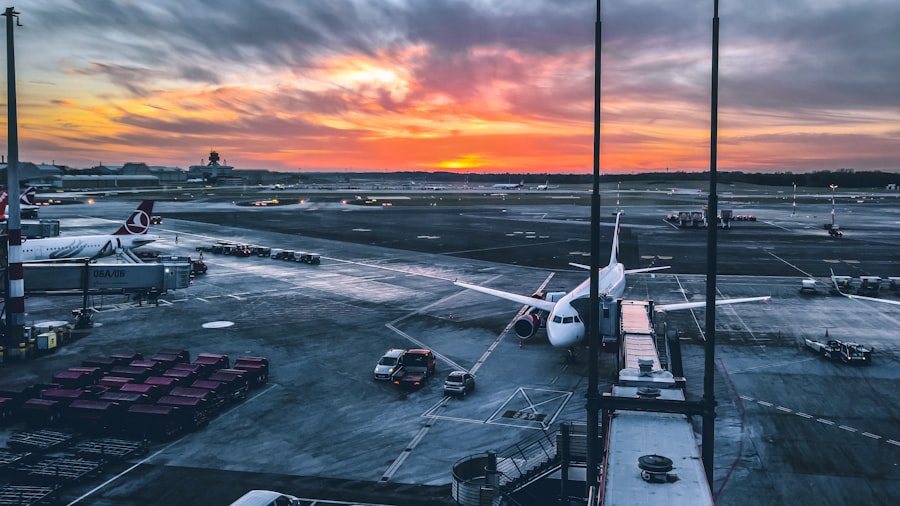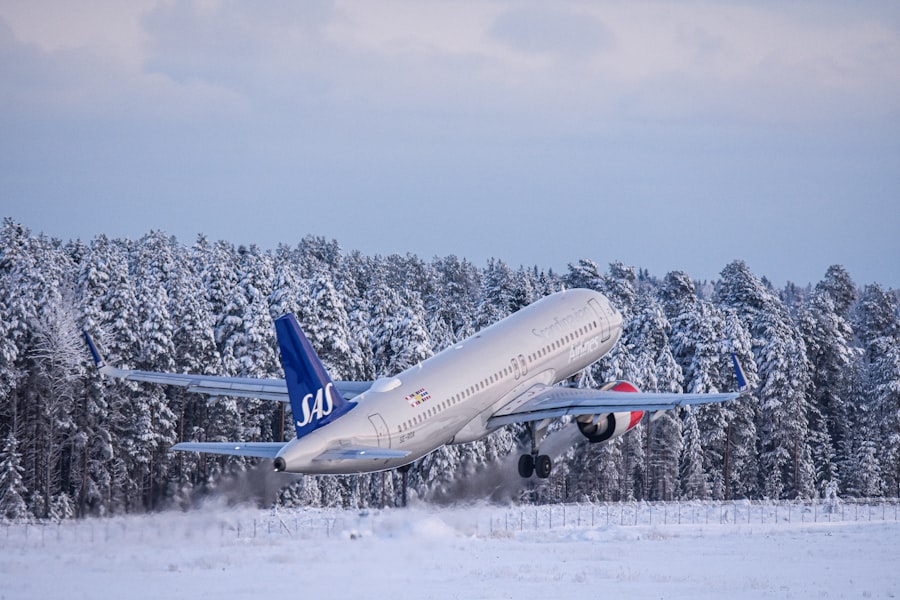The Airbus A320 family, a cornerstone of modern aviation, has transformed the landscape of commercial air travel since its introduction in the early 1980s. Designed and manufactured by Airbus, this narrow-body aircraft series has become synonymous with efficiency, versatility, and reliability. The A320 was the first commercial jet to feature a fully digital fly-by-wire control system, which not only enhanced safety but also improved fuel efficiency and reduced pilot workload.
This innovative approach to aircraft design has set a precedent for subsequent models and has influenced the entire aviation industry. The A320 family includes several variants, such as the A318, A319, A320, and A321, each tailored to meet specific operational needs. With a capacity ranging from 100 to over 240 passengers, the A320 series caters to a diverse array of airlines and routes.
Its ability to operate in various environments—from bustling international airports to smaller regional airfields—has made it a favorite among carriers worldwide. As of 2023, the A320 family boasts thousands of units in service globally, underscoring its status as one of the best-selling aircraft in history.
Key Takeaways
- The Airbus A320 is a popular and versatile aircraft used for various purposes including commercial passenger flights, cargo transportation, military operations, specialized missions, corporate jets, and VIP transport.
- As a commercial passenger aircraft, the A320 is known for its fuel efficiency, advanced technology, and comfortable cabin design, making it a popular choice for airlines around the world.
- When used as a cargo aircraft, the A320 offers a flexible and cost-effective solution for transporting goods and supplies to various destinations, with the ability to carry a significant payload.
- In military operations, the A320 can be adapted for various missions including troop transport, medical evacuation, and surveillance, showcasing its adaptability and reliability in challenging environments.
- The A320 can also be customized for specialized missions such as firefighting, search and rescue, and humanitarian aid, demonstrating its versatility and ability to support critical operations.
- With its spacious cabin and long-range capabilities, the A320 is often used as a corporate jet, providing executives and business travelers with a luxurious and efficient mode of transportation.
- The A320 is also utilized as a VIP transport, offering high-profile individuals and government officials a secure and comfortable travel experience, with the ability to customize the interior to meet specific requirements.
- As the aviation industry continues to evolve, the Airbus A320 is expected to remain a key player, with ongoing advancements in technology and design to meet the changing needs of various sectors.
The A320 as a Commercial Passenger Aircraft
The A320 has established itself as a dominant player in the commercial aviation sector, primarily due to its operational efficiency and passenger comfort. Airlines appreciate its fuel-efficient engines, which significantly reduce operating costs while minimizing environmental impact. The aircraft is equipped with either CFM International LEAP or Pratt & Whitney PW1000G engines, both of which are designed to optimize fuel consumption without compromising performance.
This efficiency is particularly crucial in an era where airlines are increasingly focused on sustainability and reducing their carbon footprints. Passenger experience aboard the A320 is another key factor contributing to its popularity. The cabin is designed with comfort in mind, featuring wider seats and larger windows compared to its competitors.
The aircraft’s cabin layout can be customized to accommodate various seating configurations, allowing airlines to maximize capacity or enhance passenger comfort based on their business model. Additionally, the A320’s quiet cabin environment and advanced air conditioning systems contribute to a pleasant flying experience, making it a preferred choice for both short-haul and medium-haul routes.
The A320 as a Cargo Aircraft

While primarily recognized as a passenger aircraft, the A320 has also found a niche in the cargo sector. The aircraft’s versatility allows it to be converted into freighters, enabling airlines and logistics companies to transport goods efficiently. The A320P2F (Passenger-to-Freighter) conversion program is one such initiative that has gained traction in recent years.
This program transforms retired passenger A320s into dedicated freighters, providing operators with a cost-effective solution for air cargo transport. The A320 freighter variant offers a maximum payload capacity of approximately 21 tons, making it suitable for various cargo types, including perishables, electronics, and e-commerce shipments. Its ability to operate from shorter runways expands the range of airports that can be serviced, allowing for more flexible logistics solutions.
Furthermore, the aircraft’s efficient fuel consumption translates into lower operating costs for cargo operators, enhancing profitability in an increasingly competitive market.
The A320 as a Military Aircraft
| Category | Details |
|---|---|
| Role | Tactical airlifter, aerial refueling tanker, and military transport aircraft |
| Manufacturer | Airbus |
| First flight | 15 March 1988 |
| Introduction | 1993 |
| Primary users | French Air Force, German Air Force, Royal Air Force, and others |
| Number built | Over 200 |
| Unit cost | US 89.3 million (A400M, 2013) |
The adaptability of the A320 extends beyond commercial aviation; it has also been utilized in military applications. Various air forces around the world have recognized the potential of the A320 platform for troop transport and logistical support missions. The aircraft’s spacious cabin can be configured to accommodate military personnel or cargo, making it an effective solution for rapid deployment scenarios.
One notable military variant is the Airbus A321LR, which has been selected by several air forces for its long-range capabilities and operational flexibility. This variant can be equipped with advanced communication systems and defensive measures, enhancing its utility in military operations. Additionally, the A320’s proven reliability and ease of maintenance make it an attractive option for military operators seeking a versatile transport solution that can adapt to various mission profiles.
The A320 as a Specialized Aircraft
Beyond its roles in commercial and military aviation, the A320 has been adapted for specialized missions that require unique capabilities. One such adaptation is the use of the aircraft for aerial firefighting operations. By modifying the cabin to accommodate firefighting equipment and water tanks, operators can deploy the A320 in regions affected by wildfires.
This capability allows for rapid response to emergencies and can significantly enhance firefighting efforts in remote areas. Another specialized application of the A320 is in the field of medical evacuation (medevac). The aircraft can be outfitted with medical equipment and personnel to transport patients quickly and safely from remote locations to hospitals or medical facilities.
This adaptability highlights the A320’s potential beyond traditional roles, showcasing its versatility in addressing various societal needs.
The A320 as a Corporate Jet

In addition to its commercial applications, the A320 has also been transformed into a corporate jet for private use by businesses and high-net-worth individuals. The A320neo (New Engine Option) variant is particularly popular among corporate clients due to its enhanced fuel efficiency and range capabilities. Corporate jets based on the A320 platform offer spacious cabins that can be customized with luxurious amenities such as private offices, conference rooms, and sleeping quarters.
The ability to configure the interior according to specific client preferences makes the A320 an attractive option for those seeking a personalized travel experience. With advanced avionics and comfortable seating arrangements, corporate versions of the A320 provide an environment conducive to productivity while traveling. Furthermore, its range allows for non-stop flights between major business hubs, making it an efficient choice for corporate travel.
The A320 as a VIP Transport
The Airbus A320 family has also been adapted for VIP transport roles, catering to government officials, dignitaries, and other high-profile individuals. These VIP-configured aircraft are often equipped with state-of-the-art communication systems and luxurious interiors designed for comfort and privacy. The customization options available for VIP transports are extensive; clients can choose everything from bespoke seating arrangements to advanced entertainment systems.
Governments around the world have utilized modified A320s for official state visits and diplomatic missions. The aircraft’s ability to accommodate large delegations while providing a secure and comfortable environment makes it an ideal choice for such purposes. Additionally, the aircraft’s operational flexibility allows it to access smaller airports that may not be suitable for larger jets, further enhancing its utility in VIP transport scenarios.
The Future of the Airbus A320
As we look toward the future of aviation, the Airbus A320 family remains poised to adapt to evolving market demands and technological advancements. With increasing emphasis on sustainability within the aviation industry, future iterations of the A320 are likely to incorporate even more fuel-efficient technologies and alternative energy sources. Innovations such as electric propulsion systems or hybrid technologies could redefine how this iconic aircraft operates in years to come.
Moreover, as global air travel continues to recover post-pandemic, demand for both passenger and cargo variants of the A320 is expected to rise. Airlines are likely to invest in modernizing their fleets with newer models that offer enhanced performance and lower environmental impact. The versatility of the A320 family ensures that it will continue to play a significant role across various sectors of aviation—commercial, military, cargo, specialized missions, corporate travel, and VIP transport—solidifying its legacy as one of the most important aircraft in aviation history.


